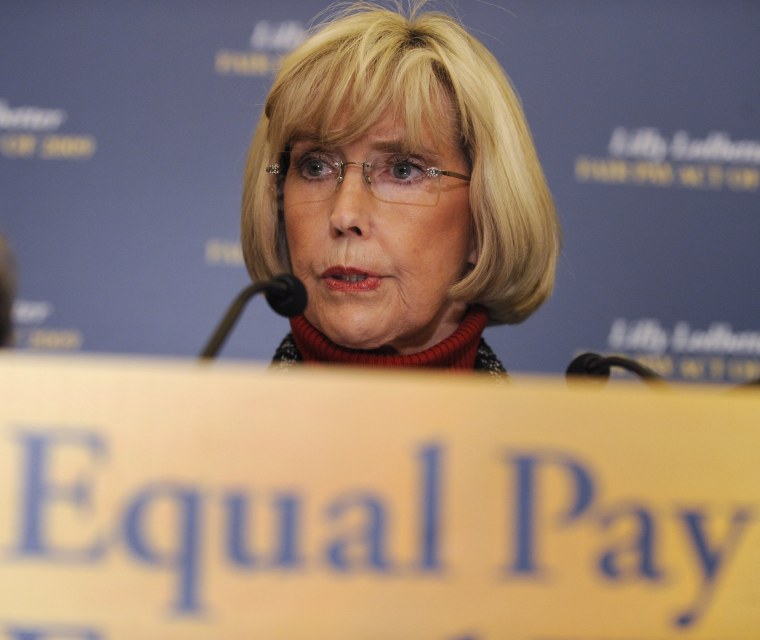This Equal Pay Day, Democrats are calling for renewed support of the Paycheck Fairness Act, a bill intended to give teeth to existing equal pay legislation by closing loopholes in the 50-year-old Equal Pay Act and by prohibiting employers from paying a man more than a woman for the same job, and from retaliating against women employees who challenge pay disparities.
President Obama committed to renewing the fight for pay equity during his 2013 State of the Union address, saying, "I ask this Congress to declare that women should earn a living equal to their efforts, and finally pass the Paycheck Fairness Act this year."
But Congresses past have failed to do just that. Brought twice before the House and Senate since 2009, the legislation was blocked on its way to becoming law both times.
Co-sponsors Democratic Senator Barbara Mikulski, from Maryland, and Democratic Rep. Rosa DeLauro, of Connecticut, pointed to this year's fiftieth anniversary of former President John F. Kennedy signing the Equal Pay Act into law. In 1963, women made up only a third of the American workforce, Mikulski and DeLauro wrote in a Huffington Post op-ed Tuesday, but the practice Kennedy called "unconscionable" of paying women less than men, they wrote, continues today.
"It is not a women's issue. It is an economic issue for families," DeLauro told U.S. News & World Report. "We have had real opposition to the bill. There is a lack of belief that this exists."
But according to Census Bureau data, the pay discrepancy exists in all 50 states as well as the 50 largest metropolitan areas in the country. The wage gap is even wider for minorities, with African-American women earning 69 cents on the dollar and Hispanic women earning 60 cents, according to the Institute for Women’s Policy Research. The numbers fluctuate by industry, with women's earnings coming closer to parity in the hospitality and agriculture sectors, but falling further behind in financial services and manufacturing.
President Obama, whose first law signed in office was the Lilly Ledbetter Equal Pay Act extending the time frame for filing equal pay lawsuits, has made verbal commitments to shepherding the legislation through Congress. He reiterated in a proclamation issued by his office in honor of Equal Pay Day, "To grow our middle class and spur progress in the years ahead, we need to address longstanding inequity that keeps women from earning a living equal to their efforts. That is why I have made pay equity a top priority... [and] I continue to call on the Congress to pass the Paycheck Fairness Act."
But some lawmakers and women's advocacy groups are looking for more than words: Mikulski and DeLauro in their op-ed, along with The National Women's Law Center and the ACLU are urging Obama to take executive action on equal pay. In a letter sent to the President in advance of this year's Equal Pay Day, the ACLU along with more than 100 other organizations is calling for an executive order prohibiting federal contractors from retaliating against employees who disclose or seek information about their salaries. Federal contractors employ roughly 20 percent of the national workforce.
A women on average still makes 77 cents for every dollar a man makes, leading to a median income disparity of more than $11,000 a year according to a study based on U.S. Census Bureau data and conducted by the National Partnership for Women and Families.
